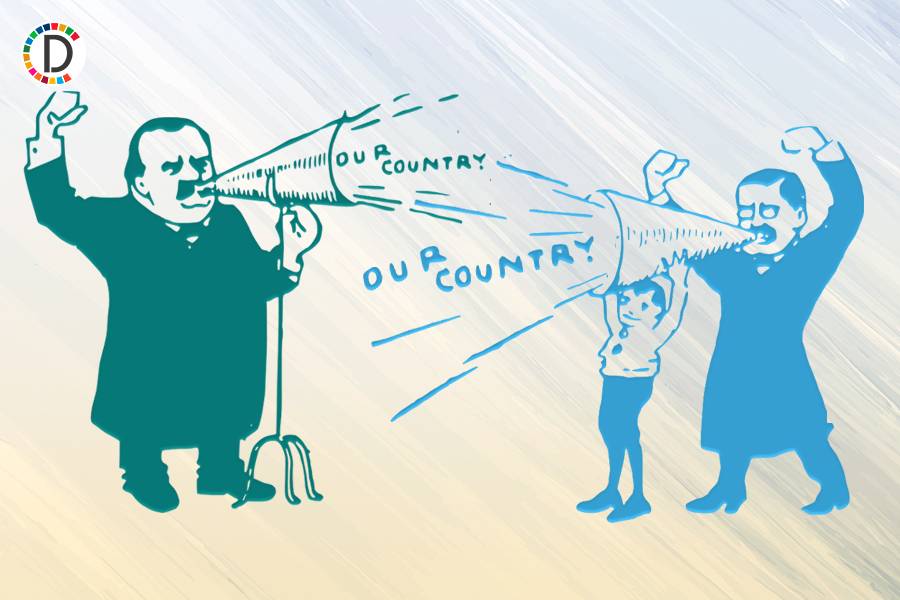National Rally Shakes Up France's Political Landscape
Marine Le Pen's National Rally party has taken the lead in France's parliamentary elections, securing around 34% of the vote in the first round. The party's success has sent shockwaves through the political landscape, raising questions about the formation of a government and the future of the 'republican front.'

Marine Le Pen's far-right National Rally (RN) party won the first round of France's parliamentary elections on Sunday, exit polls showed, but the final result will depend on days of horsetrading before next week's run-off. The RN was seen winning around 34% of the vote, exit polls from Ipsos, Ifop, OpinionWay and Elabe showed.
That was ahead of leftist and centrist rivals, including President Emmanuel Macron's Together alliance, whose bloc was seen winning 20.5%-23%. The New Popular Front, a hastily assembled left-wing coalition, was projected to win around 29% of the vote, the exit polls showed. The exit polls were in line with opinion polls ahead of the election, but provided little clarity on whether once next Sunday's second round is concluded the anti-immigrant, eurosceptic RN will be able to form a government to "cohabit" with the pro-EU Macron.
The RN was seen winning the most seats in the National Assembly, but only one of the pollsters - Elabe - had the party winning an absolute majority of 289 seats in the July 7 run-off. Experts say that seat projections after first-round votes can be highly inaccurate, and especially so in this election.
Voter participation was high compared with previous parliamentary elections, illustrating the political fervour Macron aroused with his stunning decision to call a parliamentary vote after the RN trounced his party in European Parliament elections earlier this month. A week of political bargaining now lies ahead.
In a written statement to the press, Macron called on voters to rally behind candidates who are "clearly republican and democratic", which, based on his recent declarations, would exclude candidates from the RN and from the hard-left France Unbowed party. JOINING FORCES
The final result will depend on how parties decide to join forces in each of France's 577 constituencies for the second round. In the past, centre-right and centre-left parties have teamed up to keep the RN from power, but that dynamic, called the "republican front" in France, is less certain than ever.
The president's decision to call snap elections plunged his country into political uncertainty, sent shockwaves around Europe and prompted a sell-off of French assets on financial markets. A longtime pariah, the RN is now closer to power than it has ever been. Le Pen has sought to clean up the image of a party known for racism and antisemitism, a tactic that has worked amid voter anger at Macron, the high cost of living and growing concerns over immigration.
By 1500 GMT, turnout was nearly 60%, compared with 39.42% two years ago - the highest comparable turnout figures since the 1986 legislative vote, Ipsos France's research director Mathieu Gallard said. (Additional reporting by Ardee Napolitano and Janis Laizans in Hénin-Beaumont and Clotaire Achi, Imad Creidi, Lucien Libert in Paris Writing by Estelle Shirbon and Gabriel Stargardter; Editing by Andrew Heavens and Frances Kerry)
(This story has not been edited by Devdiscourse staff and is auto-generated from a syndicated feed.)










